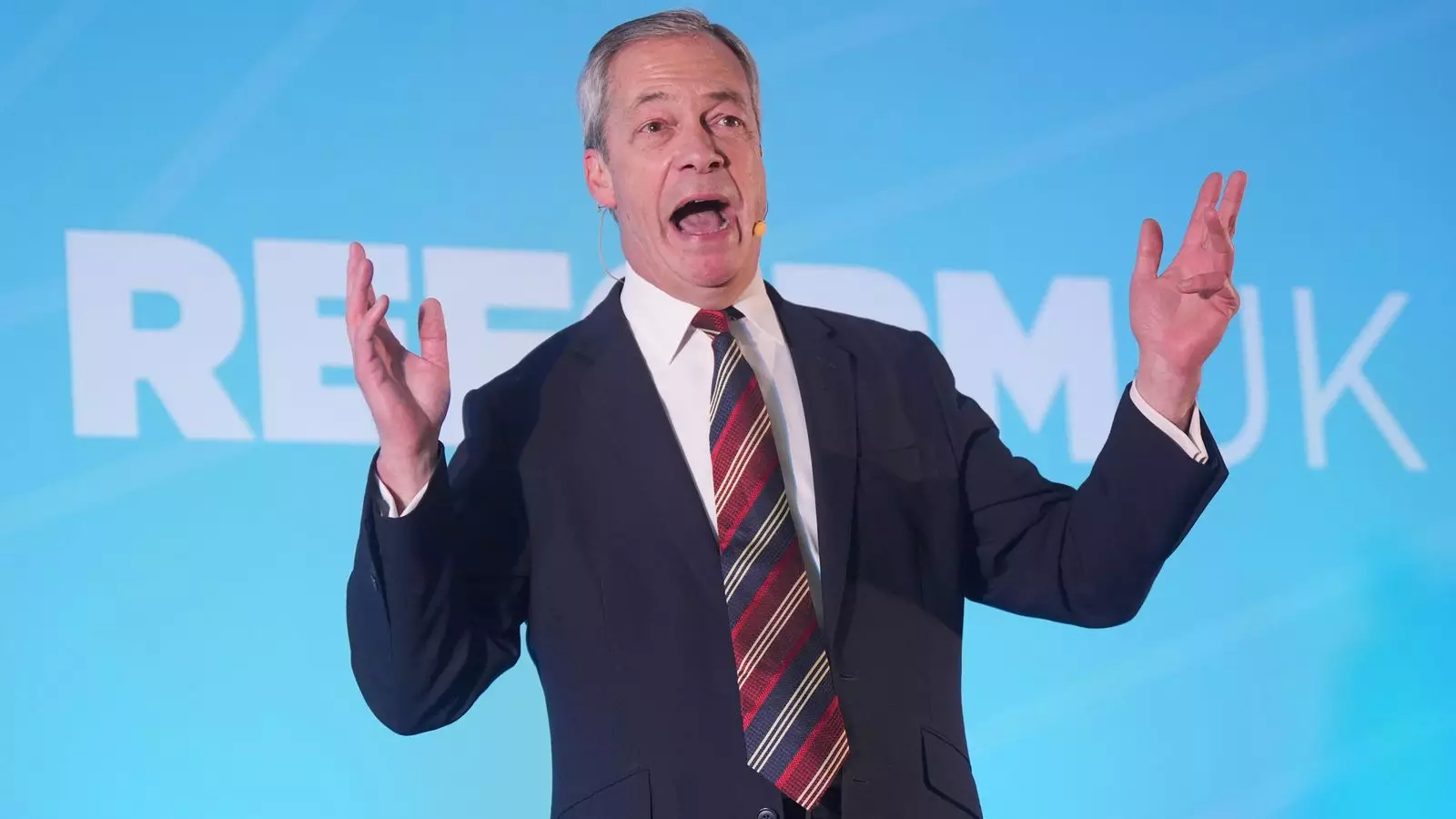The unpredictable realm of modern politics was recently encapsulated in the exchange between the British politician Nigel Farage and billionaire tech mogul Elon Musk. After Musk publicly declared that Farage lacks the leadership qualities necessary for his party, the Reform Party leader has made it clear he will not cower under any pressure from anyone, including the influential social media owner. This confrontation raises questions not just about Farage’s political strategy but also about the broader dynamics of influence and support in contemporary politics.
A Volatile Friendship: Farage and Musk
Farage’s assertion, made during an interview with Sky News, that he “can’t be pushed or bullied” by anyone—including Musk—is indicative of a steadfastness that has characterized his political career. Farage has acknowledged speaking with Musk since the latter’s pointed criticism, but his refusal to disclose details of their conversation hints at the complexity of their relationship. In the wake of Musk’s acerbic assessment, one wonders whether this friendship will endure the test of political pressures and ideological differences.
While Farage seems willing to overlook Musk’s bluntness, he made it clear that their conversation included supportive comments alongside criticisms. By positioning himself as someone who can engage with prominent figures while also standing firm on his convictions, Farage paints a picture of a politician who values open dialogue without compromising his stance. In a world where public figures can easily sway opinions, this committed individuality is both refreshing and crucial for maintaining integrity.
Yet, where his friendship with Musk stumbles is on the subject of far-right activist Tommy Robinson. Farage revealed that he does not share Musk’s view of Robinson as a “political prisoner,” highlighting a significant ideological rift. The Reform Party leader’s rejection of Robinson’s supporters within his party underscores the meticulous line he wishes to draw regarding who represents the party’s values. The implication here is clear: Farage is willing to combat external pressures—even from friends—to safeguard the integrity of his party’s identity.
By expressing that Robinson’s presence is unwelcome within Reform UK, Farage unequivocally distances himself from the narratives often associated with the far-right. His historical rejection of associations with groups such as the British National Party (BNP) illustrates an ongoing battle for the heart of not just his party but also for the fight against the stigma attached to right-wing politics in the UK. This point of contention reflects a broader struggle in some political circles where individuals grapple with their affiliations in a rapidly evolving political environment.
Concern Over Democracy: Devolution Plans
Amidst these personal and political dramas, Farage has also delved into critiques of current government policies, particularly regarding proposed devolution plans. His staunch denouncement of postponing local elections points to his belief that such measures symbolize a grave risk to democratic processes. For Farage, the potential cancellation of elections is an affront to democracy reminiscent of authoritarian regimes—a strong claim that warrants attention and discourse from all political players.
These comments come as Farage prepares for upcoming elections, hoping to galvanize support for Reform UK amid concerns over a perceived erosion of democratic values. His portrayal of local councils as fearful entities looking to consolidate power hints at a broader critique of both governmental responsiveness and the protective behaviors of political institutions in the face of electoral pressure. Farage’s rhetoric suggests that he views the political landscape as a battleground where principles of democracy should never be compromised under any circumstances.
Additionally, Farage touched on the hesitancy some of his party members have toward public expression about their support for Reform. This speaks volumes about the climate surrounding fringe parties, where fears of backlash or stigma can stifle open dialogue. He rejects the notion of “toxicity” associated with his party, instead attributing resistance to institutional biases against those who do not lean left. This claim challenges media narratives and exemplifies the complexity within political discourse—how perceptions can shape or hinder the ability of individuals to express their beliefs freely.
In unraveling this intricate web, it becomes evident that Farage’s confidence in the continuation of support from Musk, alongside his staunch stance against perceived adversities within and outside his party, plays a pivotal role in his political strategy. The need for political figures to finesse their narratives and alliances in today’s charged atmosphere may be more critical than ever, and Nigel Farage is undoubtedly navigating these waters with an eye on both loyalty and ideological integrity.



Leave a Reply